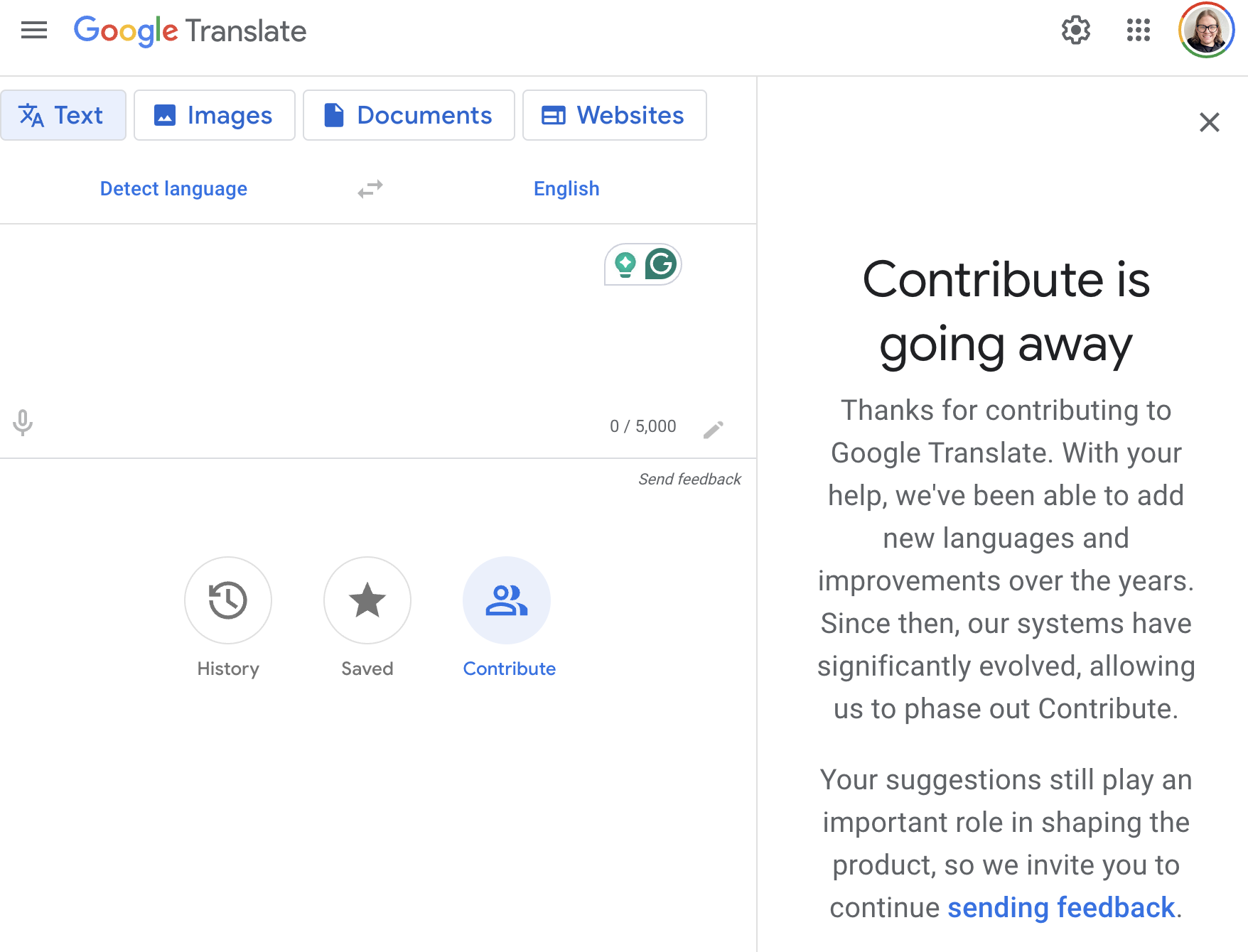Google announced that it’s shutting down the Contribute feature for Google Translate, which allowed users to suggest translations to improve the tool’s quality.
The decision comes as Google Translate has seen significant advancements in recent years, mainly due to the evolution and learning of its underlying systems.
The Launch Of The Contribute Feature
Launched in 2014, the Contribute feature was designed to leverage the knowledge of language enthusiasts and native speakers to enhance translations for the 80 languages supported by Google Translate.
Users could participate in the Translate Community by generating new translations, rating existing ones, and providing feedback on improving the service.
In a statement, Google acknowledged the value of user contributions, saying, “When Contribute first launched, real speakers often provided helpful translation suggestions when Translate missed the mark.”
However, Google believes that the improvements made to the service have removed the need for this feature.
Now. when navigating to translate.google.com and clicking on Contribute, you’ll see a message about its discontinuation:

New System For User Feedback
Moving forward, Google Translate users can provide feedback directly through the Android and iOS apps and on the desktop version when they feel a translation could be improved.
Google believes this new system will maintain the quality of the service while reducing the reliance on the Contribute feature.
When the feature was first introduced, it was seen as an innovative way to engage users and tap into the collective knowledge of language communities worldwide.
As Google Translate matured, the company developed machine learning techniques, such as neural machine translation, which greatly enhanced the accuracy and fluency of translations.
These technological advancements allow Google to provide higher-quality translations without relying as much on user contributions.
Looking Ahead
While the Contribute feature may be gone, Google remains committed to delivering accurate and reliable translations.
Google’s innovation in language technology means Translate will continue to be a valuable tool for breaking down language barriers and facilitating global communication.
FAQ
How does Google plan to maintain the quality of its translations after discontinuing the Contribute feature?
Google intends to sustain the quality of its translation services through the following means:
- Continued advancement in machine learning, including neural machine translation technology, enables higher-quality translations.
- Implement a new feedback system where users can report translation issues directly via Google Translate’s Android and iOS apps and the desktop version.
What was the original purpose of Google Translate’s Contribute feature, and how has it evolved?
The Contribute feature was established with these objectives and has evolved as follows:
- Launched in 2014 to engage language enthusiasts and native speakers in enhancing translation quality for 80 languages.
- Provided a platform for users to suggest new translations, rate existing ones, and offer optimization feedback.
- It evolved with Google’s language technology to the point where user-generated contributions became less critical due to improved machine learning techniques.
Featured Image: Mojahid Mottakin/Shutterstock





![AI Overviews: We Reverse-Engineered Them So You Don't Have To [+ What You Need To Do Next]](https://www.searchenginejournal.com/wp-content/uploads/2025/04/sidebar1x-455.png)